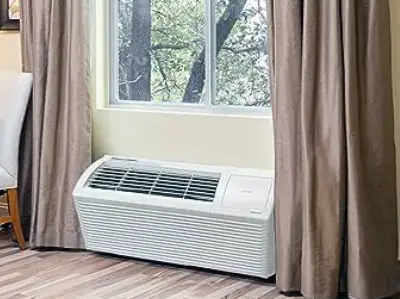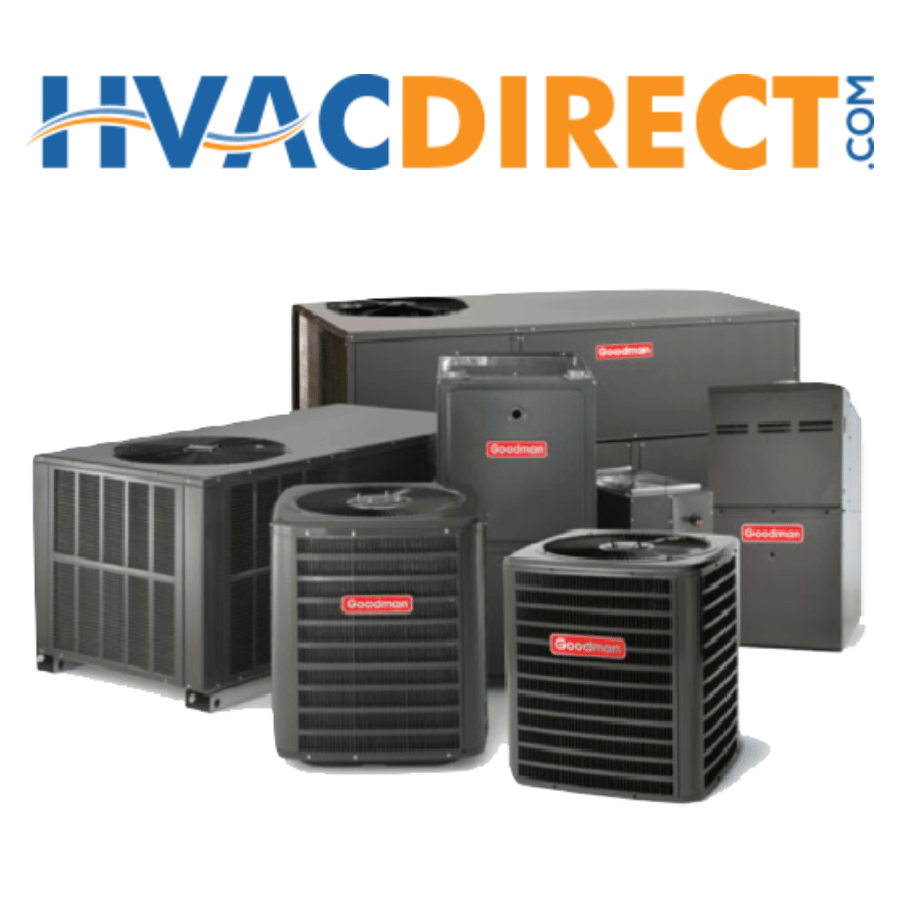Are Ptac Units 110 Or 220
Did you know that nearly 90% of households in the United States rely on air conditioning to keep their homes cool and comfortable? With such a high demand for cooling solutions, it’s no wonder that people are constantly searching for the most efficient and cost-effective options. One popular choice is PTAC units, which stand for Packaged Terminal Air Conditioners. These versatile units are commonly used in hotels, apartments, and even single-family homes. Are Ptac Units 110 or 220?

When it comes to voltage requirements, PTAC units can actually operate on both 110 and 220 volts. The specific voltage needed depends on the model and brand of the unit. Generally speaking, older models tend to require 220 volts, while newer ones are designed to work with standard household outlets at 110 volts. This flexibility makes PTAC units suitable for a wide range of electrical systems, ensuring compatibility with various setups without the need for extensive modifications.
It’s important to note that not all PTAC units are created equal in terms of energy efficiency. As conscientious consumers who value both environmental sustainability and cost savings, we want our cooling systems to be as energy-efficient as possible. When shopping for a PTAC unit, look out for those with high Energy Efficiency Ratios (EER). A higher EER indicates better energy efficiency, meaning the unit will provide effective cooling while consuming less electricity. By choosing an energy-efficient PTAC unit, not only will you save money on your monthly utility bills but also contribute towards reducing carbon emissions and preserving our planet’s resources.
Are PTAC units 110 or 220?
PTAC units, like a well-tuned orchestra, hum effortlessly on the harmonious frequency of 220 volts. This higher voltage allows these units to provide powerful cooling and heating capabilities, making them an ideal choice for both residential and commercial spaces. When it comes to PTAC units, there is no compromise on performance.
If you’re looking for PTAC repair near me or PTAC installation services in New Jersey, it’s important to understand the power requirements of these units. While some older models may operate on 110 volts, most modern PTAC units run on 220 volts for optimal efficiency and performance. It’s always recommended to consult with a professional technician who specializes in PTAC maintenance services in New Jersey to ensure that your unit is operating at its best.
Moving forward into the subsequent section about ‘are PTAC units energy efficient,’ we can see that their power requirements play a crucial role in determining their overall efficiency and effectiveness in providing comfort throughout the year.
Are PTAC units energy-efficient
Although they may have a reputation for being energy-intensive, PTAC units can actually be quite efficient when properly maintained and used in conjunction with other temperature control strategies. PTAC units, or Packaged Terminal Air Conditioners, are designed to provide both heating and cooling in individual rooms or small spaces. They work by drawing in outside air, conditioning it to the desired temperature, and then distributing it into the room.
To ensure optimal energy efficiency with PTAC units, regular maintenance is essential. This includes cleaning or replacing filters regularly to allow for proper airflow and prevent dust buildup that can hinder performance. Additionally, scheduling professional ptac repair services in New Jersey can help identify any underlying issues that may be affecting the unit’s efficiency. By addressing these problems promptly, you can ensure that your PTAC unit operates at its peak performance level. Our PTAC services in New Jersey are dedicated to ensuring your heating and cooling systems operate at their best for year-round comfort.
Furthermore, using PTAC units in conjunction with other temperature control strategies can enhance their efficiency. For example, utilizing ceiling fans or portable fans alongside the PTAC unit can help circulate cool air more effectively throughout the room. Similarly, installing external shading devices such as blinds or curtains on sun-facing windows can reduce heat gain during hot summer days.
By implementing these measures and incorporating the expertise of a professional ptac installer who specializes in ptac heating and cooling units in New Jersey, you can maximize the energy efficiency of your PTAC system while maintaining a comfortable indoor environment. In the next section about ‘best ptac units’, we will explore some top-rated models known for their exceptional performance and energy-saving features without compromising on comfort.
Best PTAC units
One of the top-rated models in the market, these energy-saving cooling and heating systems are known for their exceptional performance and comfort. With advanced features and innovative technology, they provide efficient temperature control while minimizing energy consumption. Here are some reasons why these PTAC units are considered the best:
- Energy Efficiency: These units are designed to be highly energy efficient, helping you save on your utility bills while reducing your carbon footprint. They use advanced sensors and intelligent controls to optimize energy usage based on room occupancy, ambient temperature, and other factors.
- Quiet Operation: One of the standout features of these PTAC units is their quiet operation. They incorporate noise-reducing technologies that ensure minimal disturbance during operation, allowing you to enjoy a peaceful environment without any distracting background noise.
- Customizable Settings: These PTAC units offer a range of customizable settings to cater to individual preferences. From adjustable fan speeds to programmable timers, you have full control over how the unit operates, ensuring maximum comfort at all times.
With their superior performance and user-friendly features, it’s no wonder that these PTAC units have gained a reputation as some of the best in the market. Now let’s delve into a comparison between PTAC units and mini splits.
In terms of efficiency and performance, both PTAC units and mini splits have their strengths. However, there are key differences that can influence your choice depending on your specific needs.
PTAC units vs mini splits
When it comes to cooling and heating systems, there’s a tough competition between PTAC units and mini splits. Both options have their advantages and disadvantages, so it ultimately depends on the specific needs and preferences of the user.
PTAC units, short for Packaged Terminal Air Conditioners, are self-contained units that are commonly seen in hotels and apartment buildings. They are known for their simplicity and ease of installation, as they can be easily mounted on an exterior wall. PTAC units provide both heating and cooling capabilities in one package, making them a convenient choice for many users. However, they require a dedicated 220-volt electrical circuit to operate efficiently.
On the other hand, mini split systems offer greater flexibility in terms of installation and zoning control. They consist of two main components: an outdoor compressor unit and one or more indoor air-handling units. The indoor units can be installed in multiple rooms or zones, allowing for personalized temperature control. Mini splits are also highly energy-efficient due to their variable-speed compressors and advanced technology. Additionally, they operate on standard 110-volt electrical circuits, which makes them easier to integrate into existing electrical systems. Learn more What is the difference between the standard PTAC Unit and a heat pump.
While PTAC units have their benefits such as simplicity and all-in-one functionality, mini split systems offer greater flexibility and energy efficiency. Ultimately, the choice between the two will depend on factors such as budget, space requirements, desired level of control over temperature zones, and personal preferences. So whether you’re looking for the freedom to customize your comfort or simply seeking an easy-to-install solution, both options have something unique to offer in the world of cooling and heating systems. For dependable PTAC repair in New Jersey, trust our Bluco Mechanic to keep your heating and cooling systems in optimal working condition. Call us at (929) 447-2077.
Frequently Asked Questions
How long do PTAC units typically last?
PTAC units typically have a lifespan of 10-15 years, depending on usage and maintenance. They are designed to provide efficient heating and cooling for individual rooms or small spaces.
Can PTAC units be used in residential homes?
Yes, PTAC units can be used in residential homes. They are versatile and provide efficient heating and cooling. However, it is important to ensure proper electrical requirements are met, such as determining if they operate on 110 or 220 volts.
Are there any additional costs associated with installing a PTAC unit?
There may be additional costs associated with installing a PTAC unit, such as the need for electrical wiring and circuit installation. It’s important to consult with a professional to determine the specific requirements for your residential home.
Are PTAC units noisy when in operation?
PTAC units can be noisy during operation due to the fan and compressor. However, modern models have noise-reducing features like sound insulation and variable speed fans. These advancements ensure a quieter environment for users.
Do PTAC units require regular maintenance or servicing?
Yes, PTAC units require regular maintenance and servicing to ensure optimal performance. This includes cleaning the filters, inspecting electrical components, and lubricating moving parts. Neglecting these tasks can lead to decreased efficiency



No Comments
Be the first to start a conversation